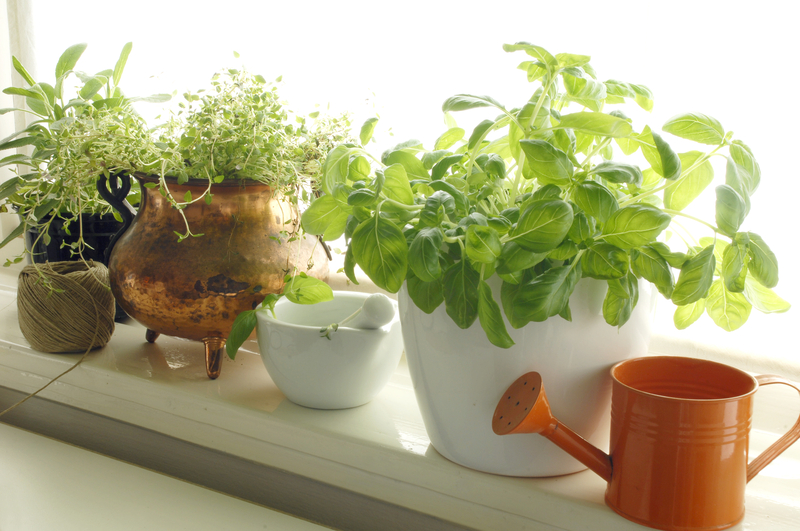Strategies for Preventing Flood Damage to Your Garden
Posted on 01/06/2024
Floods are a natural disaster that can cause significant damage to our homes, communities, and gardens. While we cannot control the weather, there are certain steps we can take to minimize flood damage to our gardens. In this article, we will discuss various strategies that you can implement to protect your garden from flood damage.
Understanding Flood Risks
The first step towards preventing flood damage is to understand the risks associated with floods in your area. For instance, if you live in a low-lying area or near a river or stream, your garden is more susceptible to flooding. It is essential to research the history of floods in your region and take necessary precautions accordingly.

Elevate Your Garden Beds
One effective strategy for preventing flood damage to your garden is by elevating your garden beds. Raised beds provide better drainage and prevent water from pooling around the plants. You can either build raised beds using wood or use containers to elevate your plants. This will not only protect your plants from floods but also improve their overall health and growth.
Choose Flood-Resistant Plants
Another way of minimizing flood damage to your garden is by selecting plants that are resistant to flooding. Some plants can survive in waterlogged conditions, while others may wilt and die. Native plants are often more resilient against floods as they have adapted to the local environment. You can also consult with a local gardening expert for recommendations on suitable flood-resistant plant varieties.
Maintain Proper Drainage System
Having a well-maintained drainage system is crucial for preventing flood damage to your garden. Ensure that gutters and downspouts are free of debris and direct them away from your garden. French drains or swales can also be installed to redirect excess water away from your garden beds. Regularly checking and cleaning your drainage system can go a long way in protecting your garden from floods.
Use Mulch to Retain Moisture
Mulching is an excellent way to retain moisture in your garden and prevent soil erosion during floods. Organic mulches, such as wood chips or shredded leaves, can also improve the soil quality and provide nutrients to your plants. Ensure that you apply mulch evenly and avoid piling it too high around the plant stems, as this can cause water to pool.
Pros and Cons of Flood Prevention Strategies
The strategies mentioned above are effective in preventing flood damage to your garden. However, they might require some time, effort, and investment on your part. For instance, building raised beds or installing a drainage system may cost some money. But the long-term benefits of protecting your garden outweigh these costs.
Another potential downside is that some prevention strategies may alter the aesthetic appeal of your garden. For example, elevated garden beds or French drains may not fit into your garden design. It is crucial to find a balance between functionality and aesthetics while implementing these strategies.
Tips for Preventing Flood Damage
o Keep an eye on weather forecasts and prepare your garden before an expected flood.
o Avoid overwatering your plants before a flood, as saturated soil is more prone to erosion.
o Plant trees and shrubs strategically around your garden to serve as natural barriers against floods.
o Regularly check for any blockages in gutters and downspouts to ensure proper drainage.
o Store gardening tools and equipment in a safe place away from the flood-prone area.

Takeaways
Preventing flood damage to your garden requires proactive planning and implementation of various strategies. Understanding flood risks, elevating garden beds, using flood-resistant plants, maintaining proper drainage system, and using mulch are all effective ways of protecting your beloved green space from floods. With careful consideration and proper maintenance, you can minimize the impact of floods on your garden and enjoy its beauty for years to come.
Conclusion
Floods can wreak havoc on our gardens, but by taking precautionary measures, we can reduce their destructive effects. From understanding flood risks to using mulch, there are many strategies available to protect your garden from floods. Remember to regularly maintain these prevention methods and adjust them according to your garden's needs. By implementing these strategies, you can ensure that your garden remains a beautiful and resilient space even after a flood.












